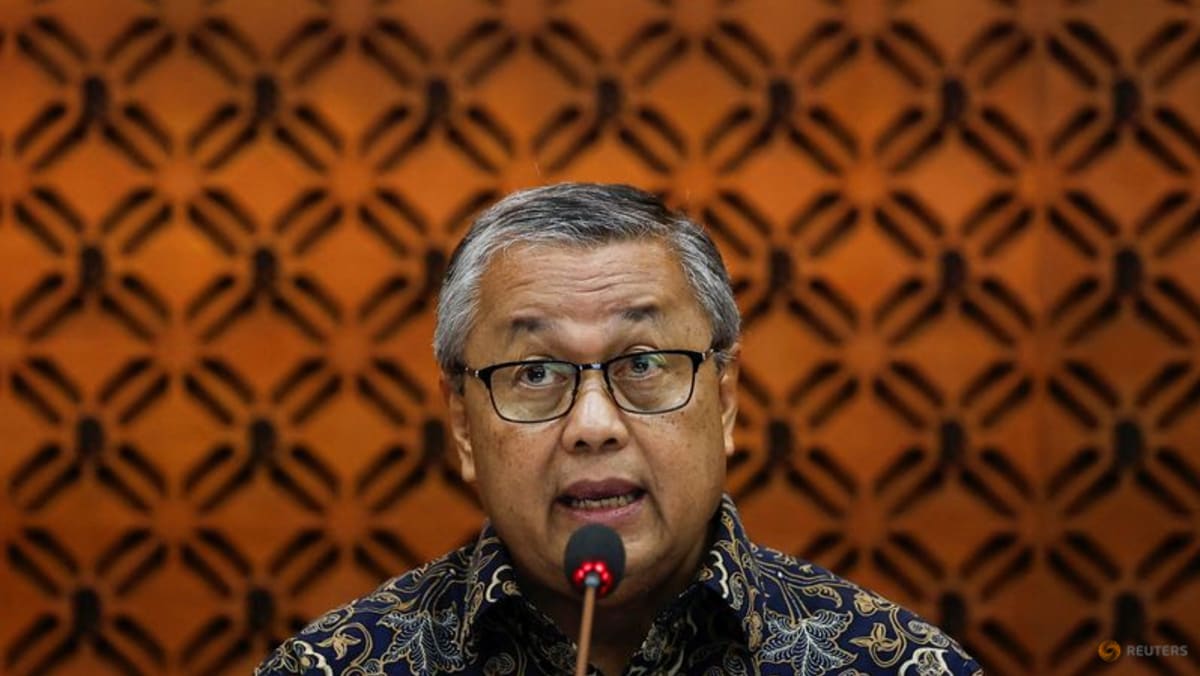Asia
Some Indonesia lawmakers eye removing central bank governor, Tempo magazine reports

Political Tensions Rise in Indonesia Over Central Bank Governor’s Role
In a developing political drama in Indonesia, some members of the country’s parliament are reportedly considering a proposal to remove the governor of the central bank, Bank Indonesia, Perry Warjiyo. According to a report published by the investigative magazine Tempo on Monday, February 17, these lawmakers are dissatisfied with Warjiyo’s alleged lack of support for the government’s economic policies. The report, which cited unnamed sources, suggested that the MPs believe the central bank chief has not been adequately cooperative in addressing economic challenges, particularly in a concept referred to as "burden sharing"—a term that implies collaboration between the government and the central bank to manage economic issues.
New Regulations Empower Parliament to Evaluate and Remove Public Officials
The potential move to oust Warjiyo comes at a time when Indonesia’s parliament has recently passed new regulations that grant lawmakers greater powers to evaluate and dismiss high-ranking public officials. Earlier this month, the legislature approved rules that now allow MPs to assess the performance of key officials, including judges in top courts, leaders of the police and military, and heads of institutions such as the anti-corruption commission. These regulations could potentially be used as a tool by parliamentarians to justify the removal of Warjiyo, should they decide to proceed with such a motion.
Denials from Key Figures Amidst Speculation
Despite the report by Tempo, which suggested that some members of President Prabowo Subianto’s coalition were behind the alleged plan to remove Warjiyo, a senior government official has denied any such initiative. Sufmi Dasco Ahmad, the deputy speaker of parliament and a prominent member of President Subianto’s political party, told Reuters that there was no plan to dismiss the central bank governor. Ahmad’s statement appears to contradict the claims made by Tempo, which cited unnamed sources within the presidential coalition and a close aide to the president, all of whom remained unidentified in the report.
The Central Bank Governor’s Alleged Lack of Cooperation
The crux of the issue appears to lie in the relationship between the central bank and the government, particularly in how they are working together to address Indonesia’s economic challenges. According to Tempo, some parliamentarians have expressed frustration with Warjiyo, alleging that he has not been sufficiently cooperative in supporting the government’s policies. The report specifically highlighted the concept of "burden sharing," which it described as a collaborative effort between the central bank and the government to manage economic problems. Warjiyo is accused of not fully embracing this approach, leading to concerns among lawmakers about his commitment to aligning the central bank’s actions with the government’s objectives.
Implications for Indonesia’s Economic and Political Landscape
The potential conflict between the parliament and the central bank governor raises significant questions about the independence of Bank Indonesia and the role of the legislature in overseeing key institutions. Should the proposal to remove Warjiyo gain traction, it could set a precedent for increased political interference in the central bank’s operations, potentially undermining its independence. Such a development could have far-reaching implications for Indonesia’s economy, as the central bank’s credibility and autonomy are crucial for maintaining investor confidence and ensuring effective monetary policy.
A Delicate Balance of Power in Indonesian Governance
The latest developments highlight the complex and often contentious relationship between the executive, legislative, and independent institutions in Indonesia. While the denial by Sufmi Dasco Ahmad suggests that the rumors of Warjiyo’s removal may be exaggerated or unfounded, the mere possibility of such a move underscores the political pressures faced by the central bank governor. As Indonesia navigates its economic challenges, the ability of the government and the central bank to work together will be critical in shaping the country’s financial future. The coming weeks and months will likely reveal whether this apparent rift is a fleeting political storm or a more enduring challenge to the stability of Indonesia’s governance structures.











